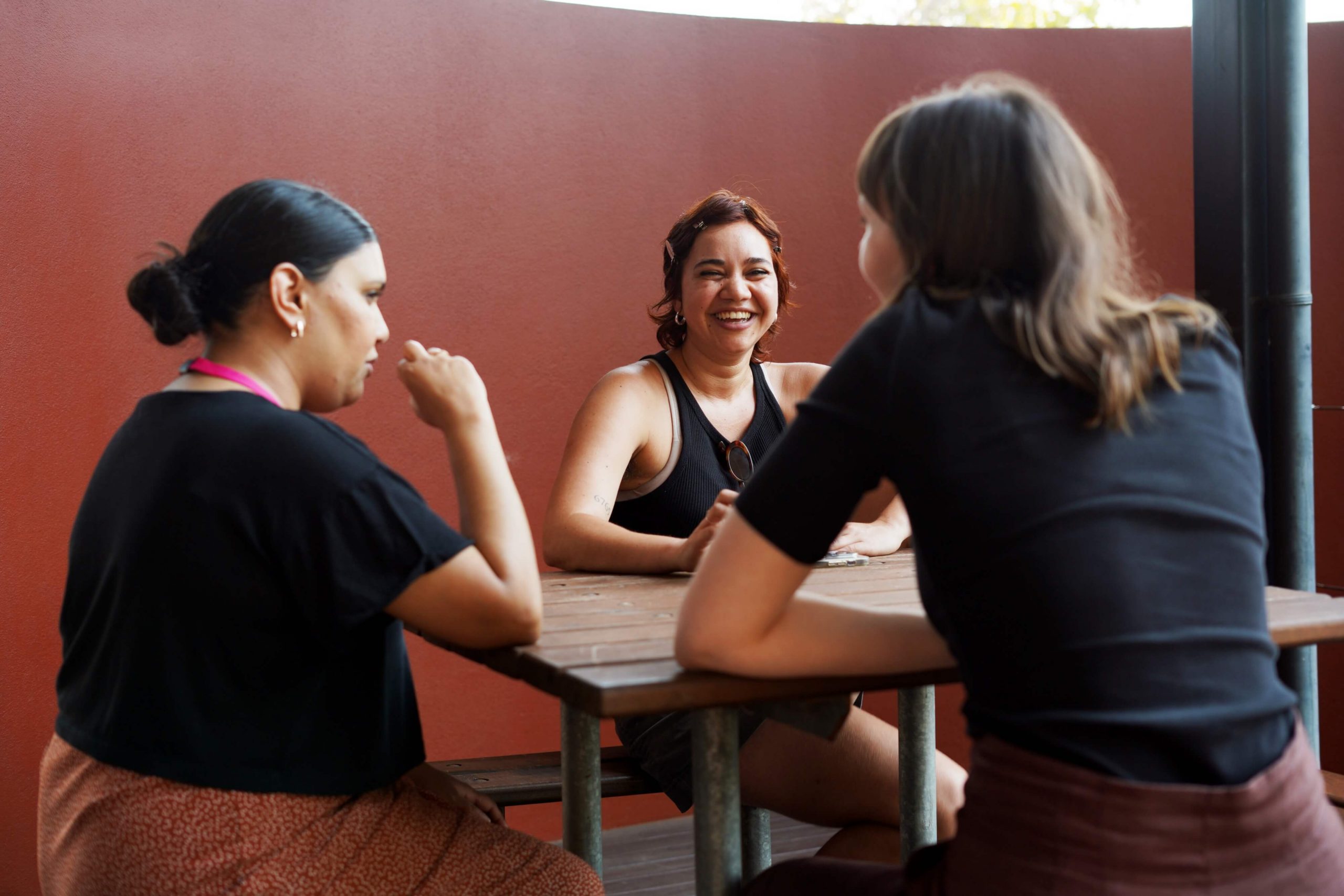“I am a Bunuba-speaking Miluwindi-clan woman from Fitzroy crossing. I grew up there, left for school, and now I’m back living there. I wanted to come back and learn my language and my culture properly.”
- Obby is a Bunuba-speaking Miluwindi-clan woman who is using technology to celebrate and preserve her culture
- Oxfam partners with the Kimberley Aboriginal Women’s Council to work towards gender equality for women and girls in the Kimberley region
- Obby attended a KAWC roundtable in 2023, where she connected with other First Nations women
“The path that I chose to kind of get myself there is… I learned how to code, so computer programming. I know that we have so much analogue knowledge, it’s already on cassettes or just other kind of digital audio, and then everything that’s been written down as well. I knew that our next step forward was going to be to digitise our knowledge, just because of technology — that’s the way that it’s going.”
“I’m kind of the bridge between tech and culture”
“I finished my course and then I got in touch with Bunuba Dawangarri, which is my language group’s organisation. I got in touch with them and I said, ‘Hi, I want to turn one of our plant books into an app, so that we could all use it.’ Instead, they offered me a job to work as the apprentice to my grandmother. It was exactly what I wanted to do, even more so.”
“I’m kind of the bridge between tech and culture. I’m passionate about language and about culture and about people, and empowering people — I think the way to do that is through language and culture.”
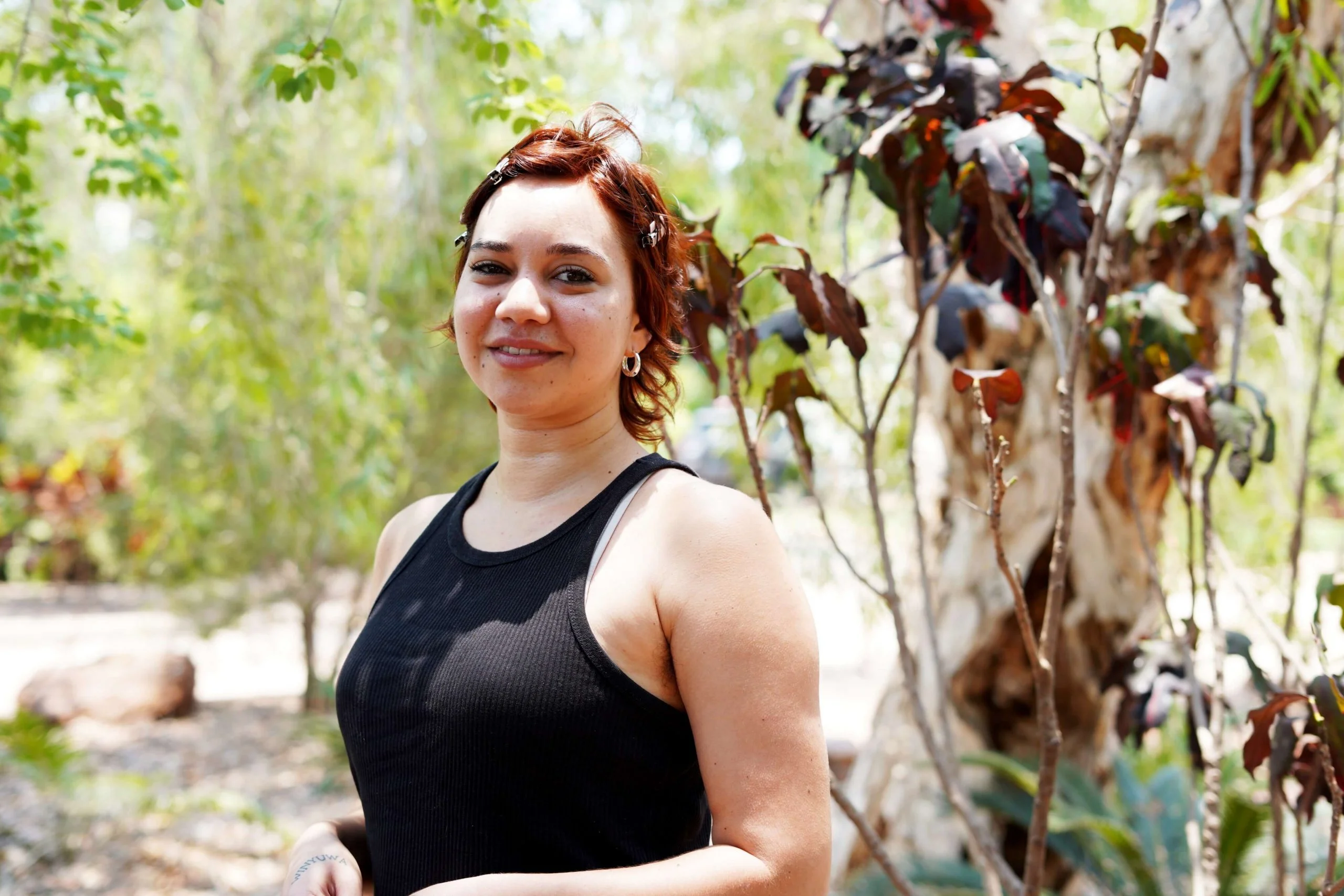
First Peoples’ justice and poverty
Despite 65,000 years caring for People and Country, the First Peoples of Australia, are too often excluded from the resources of their own country.
This is particularly true of First Nations women, who often face inequality and discrimination because of their gender. This double discrimination can worsen inequality, limit economic opportunities, increase the risk of gender-based violence and fuel poverty.
Obby, Oxfam and you
Oxfam Australia and the Kimberley Aboriginal Women’s Council — supported by people like you — are working together to promote gender equality for women and girls in the Kimberly region. In 2023, they hosted a roundtable to bring together women like Obby from across the Kimberly region to share stories, learnings and plans for the future.
“I want more language and culture to be practised and for it to be widely spoken as well.”
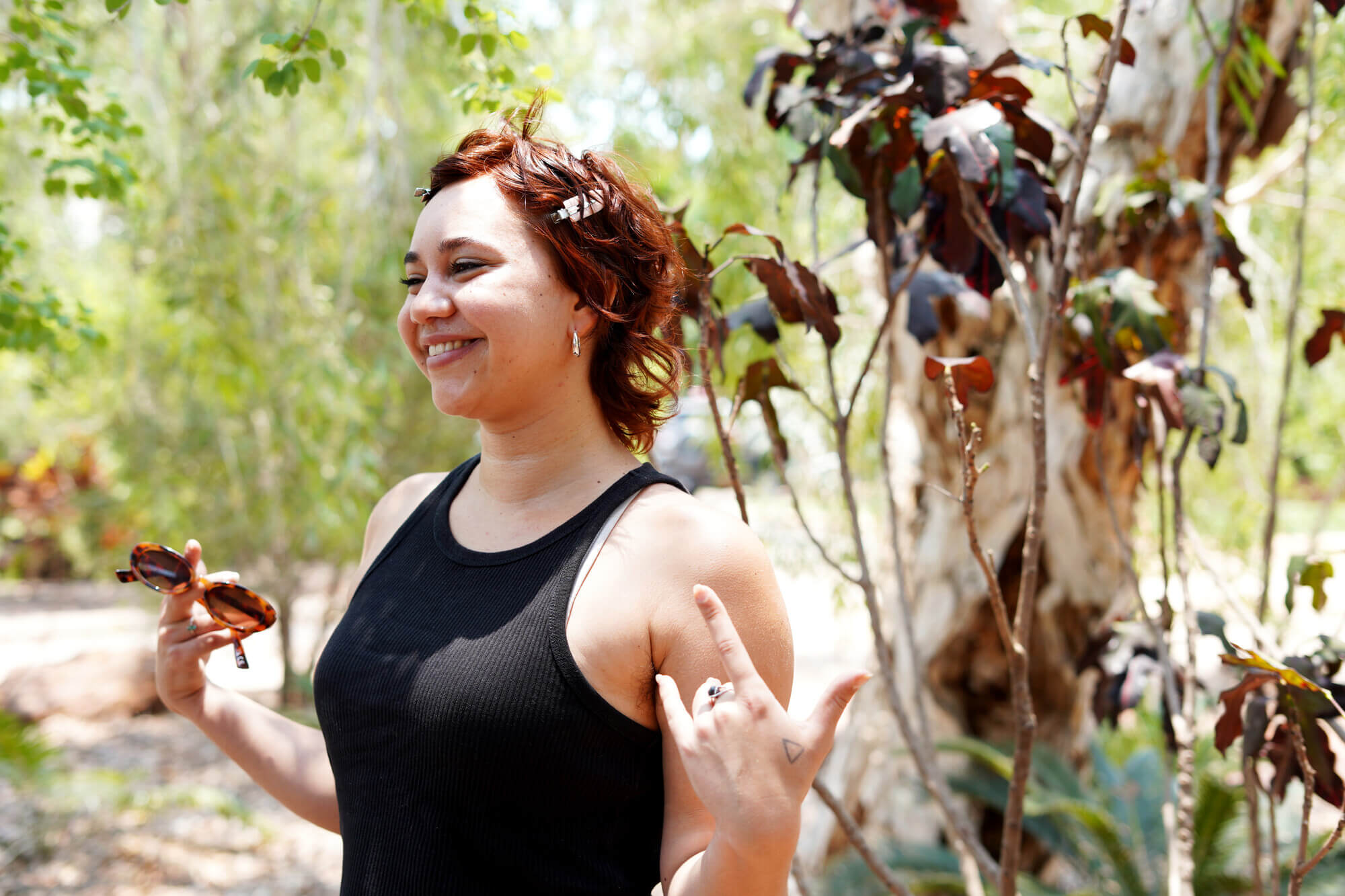
“Educating women is educating a whole community”
“I was excited to be here [at KAWC Roundtable] to see what we wanted to do as a collective, to grow together, and what we all needed to grow together. Women are the core of every single community … women are the ones that get things done. If we are going to be honest and realistic, women are the caretakers and the caregivers and all that unpaid labour that goes unrecognised — without it — the communities would not run. That’s why educating women is educating a whole community.”
“Queer voices are very important in women’s issues. I feel like Christianity has torn apart our culture in that way, because we do have queer affirming language in Bunuba. Queerness and queer women is cultural and it is a part of Culture. I just think that it’s a part of human diversity as well, and if we’re not making space for everyone then we aren’t truly making space for the community.”
This work is only possible with support from people like you. Learn more about how you’re helping us alleviate poverty through our First Peoples justice work.
Read more stories
From supporting First Peoples to thrive and providing humanitarian aid to advocating for climate justice, gender equality and better livelihoods, here’s how we’re working towards a world without poverty.
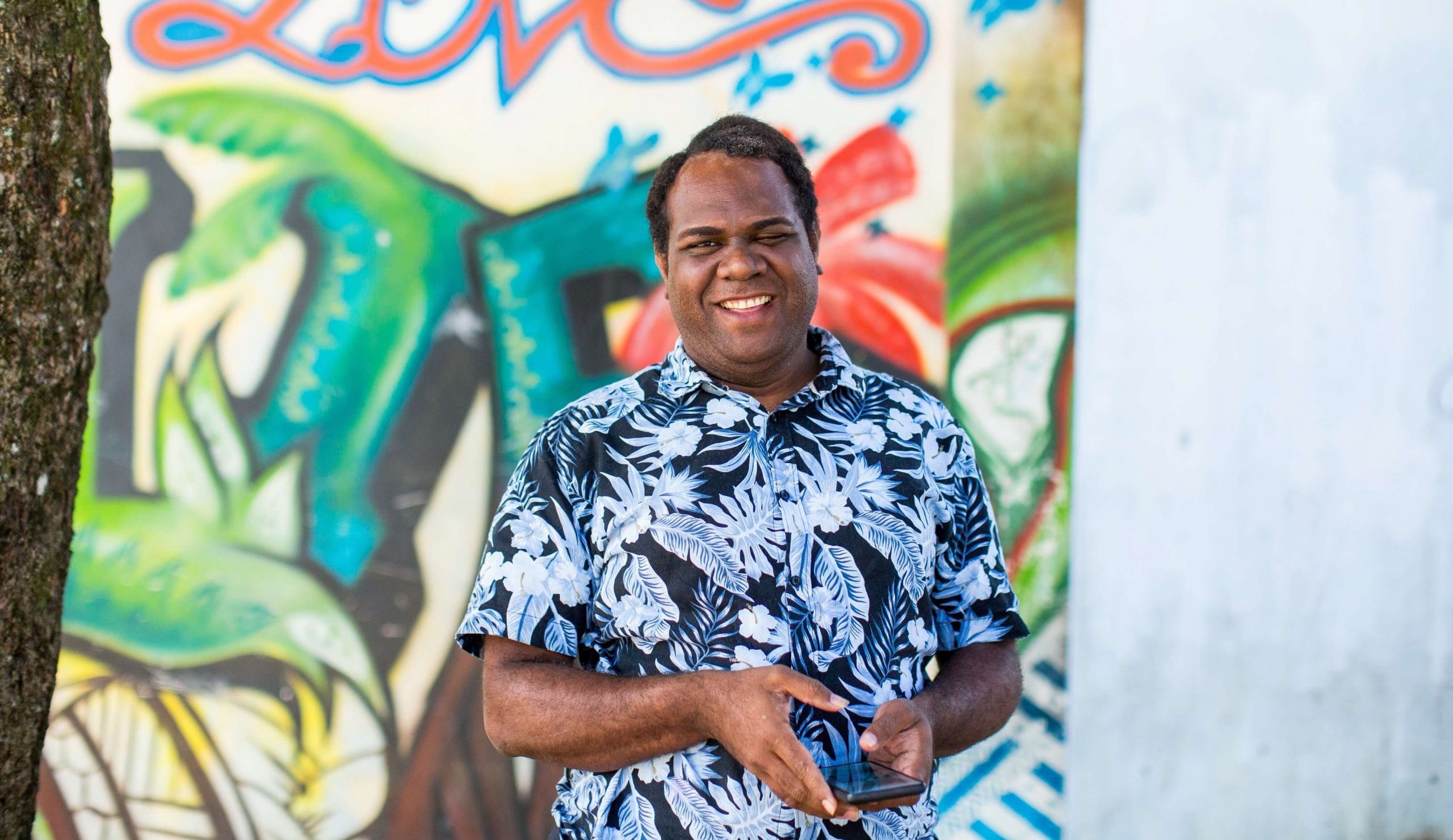
Yannick’s story
“My name is Yannick. I work at VPride as Programs Manager and I am 30 years old. I coordinate all the activities that we run with the various SOGIE [sexual orientation, gender identity, and gender expression] members in our community.”
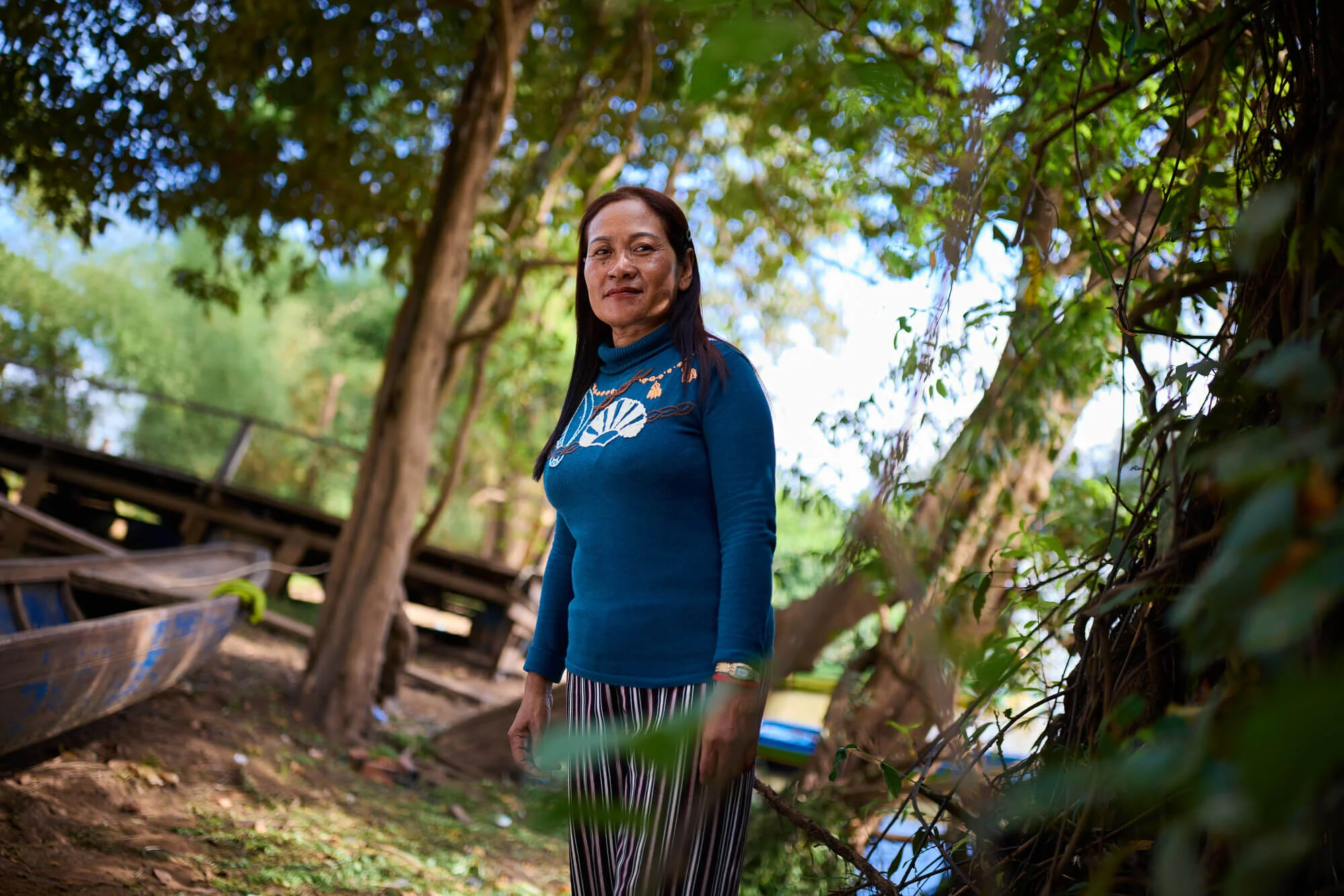
Siphon’s story
“My name is Siphon. From 2017, I worked as a volunteer in the community fishery management committee. I want to protect natural resources both in the water and on land… I gather for patrolling in this lake, and sometimes in the river.”
![Bangladesh: Munni is a tea garden worker and earns just 170 Taka [AU$2.30] per day. She has to take out loans in order to buy groceries and then struggles to pay these loans back. Munni attended training run by Oxfam partner organisation, Breaking the Silence, and says she has gained courage through this training. Photo: Fabeha Monir/Oxfam Bangladesh: Munni is a tea garden worker and earns just 170 Taka [AU$2.30] per day. She has to take out loans in order to buy groceries and then struggles to pay these loans back. Munni attended training run by Oxfam partner organisation, Breaking the Silence, and says she has gained courage through this training. Photo: Fabeha Monir/Oxfam](https://www.oxfam.org.au/wp-content/uploads/2024/08/Oxfam-InuruID-369769-Bangladesh-2024-05-11-1-1-scaled.jpg)
Munni’s story
“My name is Munni. I live in Moulvi Tea Estate. I work in the tea garden and I pluck leaves. I must go to work at 8am. I have my husband, mother-in-law, and three children in the family.”
